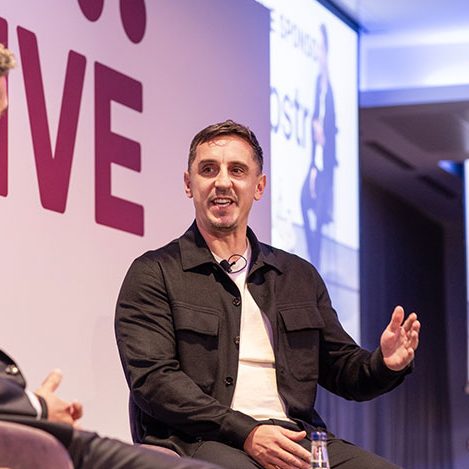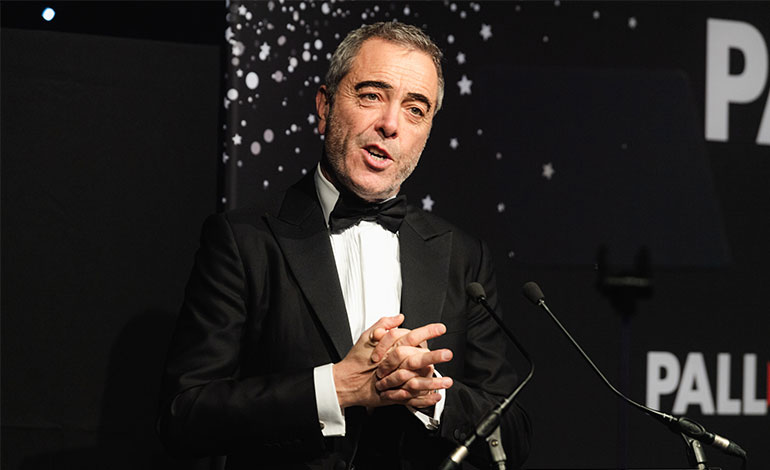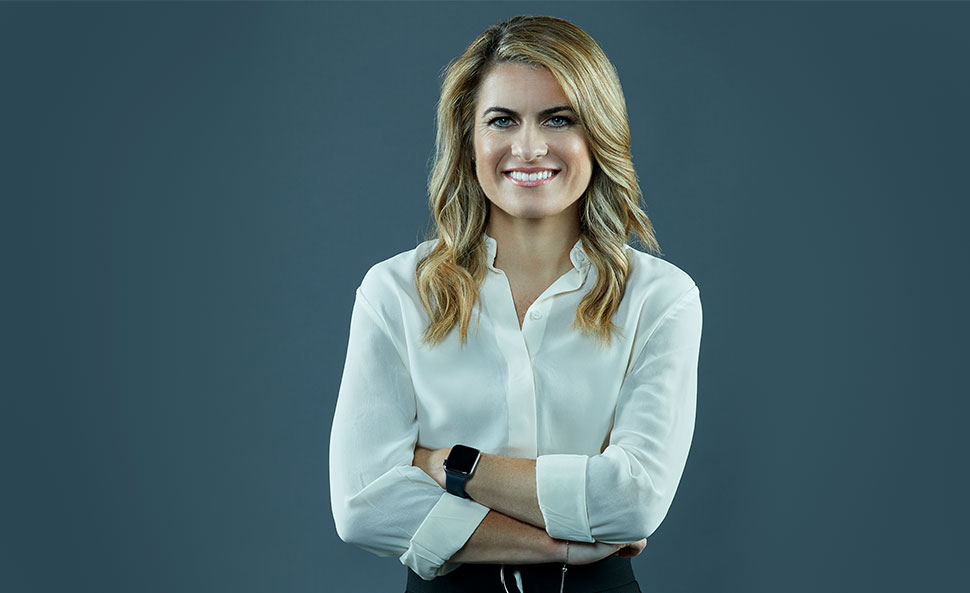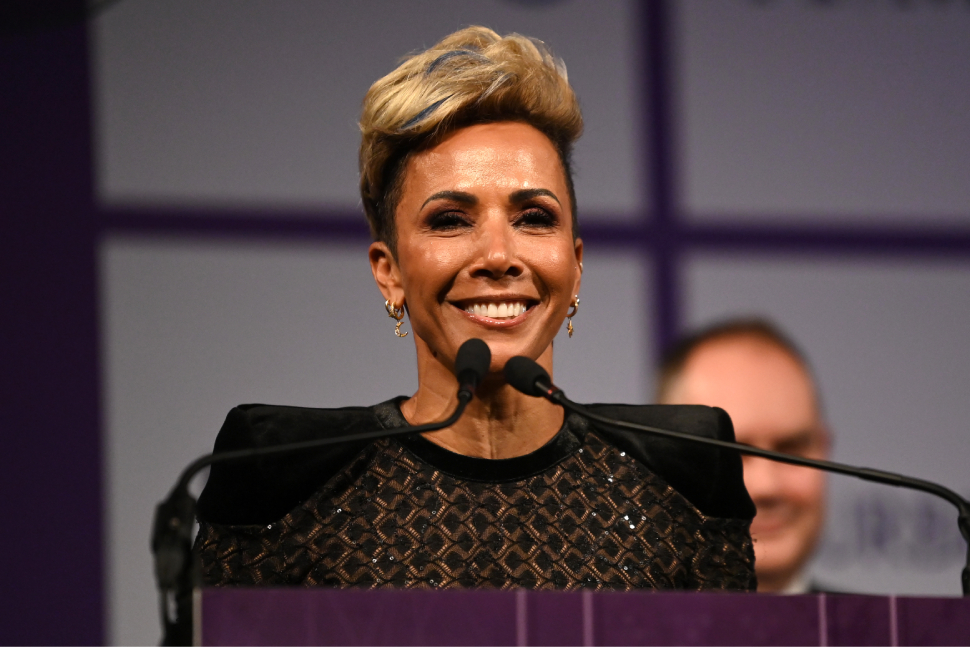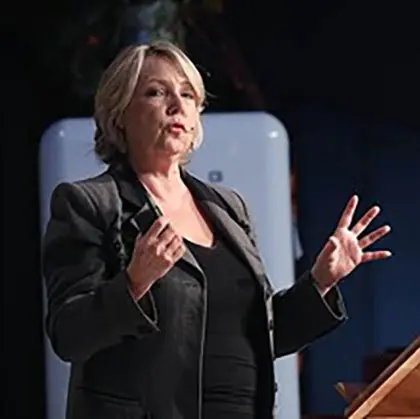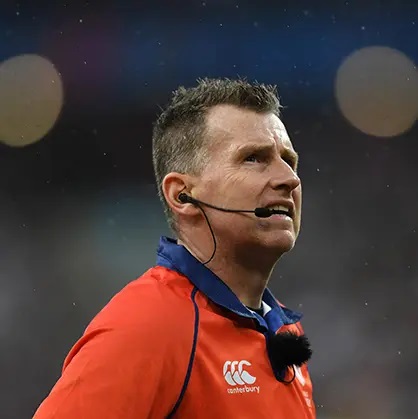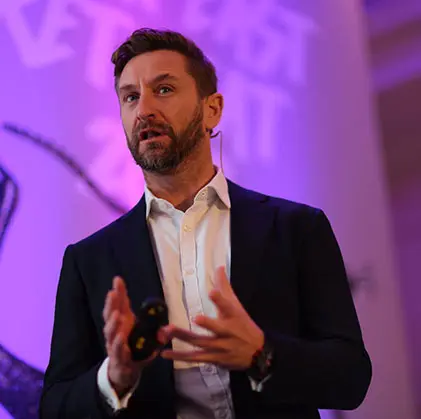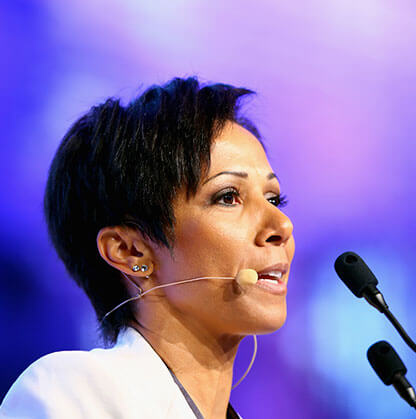What we have learnt from COP27
With COP27, the United Nations Climate Summit, currently at the forefront of both the media and our concerns, there is increased urgent attention on the need to protect our planet. The necessity to limit global temperature rises has only been made clearer following a year of climate-related disasters and temperature records.
|
17 Nov 2022
|
Top Speakers
|
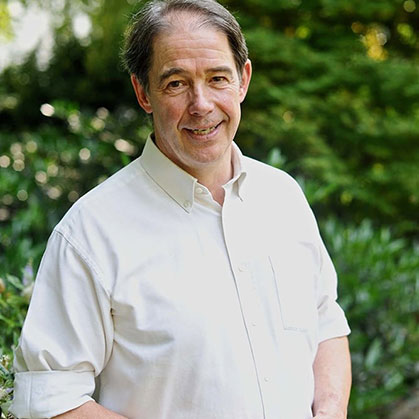
We’ve taken a look at the key learnings this Summit has generated and, as a result, what we, as individuals and businesses, can do to help. We’ve put together a selection of experts in the field, who are top speakers associated with sustainability and the environment. These speakers shed light on the current issues and advise of the actions we need to be taking. Having helped some of the biggest and the best, they are exceptional at using their knowledge and experience to advocate changes in the corporate world.
Key learnings:
Nature:
It has become clear that there is a desperate need for us to stop and reverse deforestation; transform our land use and food systems; and protect ocean ecosystems. As well as impacting animals and plants, climate change is also eroding economies, livelihoods, health, and food security. An example of this is soil erosion and degradation preventing the growth of crops for farmers. The IPCC estimates that the land use sector contributes to approximately a quarter of all global greenhouse gas emissions. Trees and grasses, both on land and in water, absorb more carbon from the atmosphere than they release. Increasing their population creates carbon sinks which will dramatically help. Some of the ways we can help contribute to this are:
- Reducing and recycling materials- this will reduce landfill waste and lower the demand for wood products
- Buying second-hand furniture rather than new – this will lower the demand for logging
- Buying certified sustainable products, for example food marked fairtrade – the generation of these aims to protect forests, indigenous communities, and the climate, and reduce causes of deforestation.
Food
Over 40% of all jobs are related to the global food, land, and ocean use systems. The food crisis, which has been worsened by the war in Ukraine, has stretched both supply chains and energy prices, resulting in the dramatic increase in agri-commodity prices. Additionally, since 2021, there are over 820 million people suffering from hunger. There is therefore an urgent need for climate-resilient food systems. Agri-food systems are responsible for up to a third of GHG emissions, and as a result land productivity has already decreased by 21%. To help with this, we can:
- Reduce food waste – saving just one quarter of the food currently wasted would be enough to feed 870 million people annually. It would also mean less food for transportation, thus lower carbon emissions.
- Eat seasonally and regionally – buying foods from local regions and that are in season mean less food is being produced under poor working conditions and via long transportation routes, thus reducing both poverty and carbon emissions.
- Improve diets – this will lower malnutrition and obesity, and therefore also many associated diseases, such as type 11 diabetes.
Water
Due to climate change, floods and droughts have become significantly more frequent and severe. The IPCC estimates that with 2C of global temperature rise, 3 billion people could face water scarcity. This will dramatically affect climate-vulnerable regions, such as Africa. Urgent water solutions are therefore needed to achieve a sustainable and resilient net-zero future. We can help to save water by:
- Taking shorter showers
- Washing at a lower temperature to save energy
- Using products like leave-in conditioner or dry shampoo, and colour catchers for washing machines, which in turn uses less water
Industry decarbonisation
With both the East and the South undergoing a dramatic increase in urbanisation, there is a greater need for the materials used to achieve low-carbon and cleaner materials and technology. The transportation of concrete, steel, aluminium, and chemicals is responsible for 30% of greenhouse gas emissions and this figure is on the rise. There is a necessity to reduce emissions to limit global warming well below 2C, which will inevitably result in the transition to these cleaner methods and technologies, from the conventional carbon intensive techniques. We can help reduce emissions caused by both production and transportation by:
- Building with re-recycled and more sustainable materials, for example recycled steel, and using sheep’s wool for insulation
- Using locally sourced materials
- Upcycling old furniture
Climate adaption
Climate change is causing more people to be living in highly vulnerable climates. The average global temperature has risen by about 1C since pre-industrial times. The technological advancement from the industrial revolution saw the beginning of a mass increase in large-scale carbon emissions. Scientists have advised that we need to stop the rise from reaching over 1.5C to avoid the worst impacts of climate change. To help, we can:
- Switch to renewable sources of energy (such as solar and wind) for power – this will emit far less heat-trapping gas into the atmosphere
- Drive electric vehicles and use mass transit – this will reduce the burning of fossil fuels
- Better insulate our homes and replace old, failing appliances with more energy-efficient models
To better advise on the above issues and associated actions and precautions which we can and should be taking, the below speakers are available to book and educate.
Key Speakers:
Nigel Topping

Looking for knowledge, experience, and insights into COP27. Ahead of COP26, Nigel Topping was appointed by the UK and titled ‘High Level Climate Champion’. He then remained at the heart of the summit throughout.
Working alongside the Chilean champion, Gonzalo Munoz, Nigel is dedicated to lowering carbon emissions, and sourcing measures to tackle climate change. He has strengthened and driven actions for businesses, investors, organisations, cities, and regions. Formerly working for 18 years in a private sector career, he is very aware of how individual businesses can help, and what changes they can feasibly make. Nigel has recently worked as the CEO of We Mean Business, a coalition of businesses working to accelerate the transition to a zero-carbon economy. He has also coordinated with governments and parties to the UNFCCC.
Being focussed on solutions rather than problems, Nigel is an excellent speaker to motivate and promote change, as well as educate us on the current issues, and why such changes are urgently required. His knowledge and understanding of both climate change and the operation of businesses makes him the perfect person to implement change.
Sally Uren

Chief Executive for Forum of the Future, Sally Uren is one of the world’s leading experts in sustainability and the environment. Having a keen interest from an early age, and with a PhD in Environmental Sciences, she created her own sustainability group – Casella Stranger.
With Forum of the Future, Sally has spearheaded Net Positive – working alongside big companies to strive for corporate sustainability; Cotton 2040 – looking to create a sustainable supply chain for the cotton industry; and Tea 2030 – continuing the sustainability of tea in the modern world. She has helped numerous businesses transform their operations to become more sustainable, combatting climate change, poverty, and civil unrest around the globe. Sally has also organised a number of sustainable food practices in the USA and is one of the most sought-after environment speakers.
For someone at the heart of various successful projects boosting sustainability, Sally is ideal to advise on techniques and tactics of how we can all play our part.
Chris Hines

Founder of Surfers Against Sewage and Sustainability Director at the Eden Project, Chris Hines has an unbelievable wealth of experience in the field, and is regarded as one of the best environment speakers on the circuit.
An avid surfer, in 1990, Chris founded Surfers Against Sewage, a marine conservation organisation committed to protecting oceans, coastlines and sea life from pollution, litter and sewage. In 2000, he became Sustainability Director at the Eden Project in Cornwall and created the Waste Neutral project – focussing on both reducing, reusing, and recycling materials; and reinvesting in materials from a recyclable source. Chris is also a recognisable face in the media, and often features on educational programmes, such as the BBC’s Panorama.
His dedication makes him the perfect person to advocate, motivate and advise on current climate issues; and as a well-known media face, his credibility appeals to all.
Tom Rivett-Carnac

As one of the most insightful climate change experts, Tom Rivett-Carnac is an international lobbyist, author, and renowned speaker.
Working with the UN and closely with former Executive Secretary, Christiana Figueres, Tom contributed to the formation if Global Optimism. He has also been a Senior Advisor at the UN Climate Convention, helping develop political policies to combat the climate crisis. Tom worked as President & Chief Executive of CDP North America; and co-authored The Future We Choose: Surviving the Climate Crisis.
With an ability to educate those who know very little on the topic, Tom is both a relatable and informative speaker. His communication and form are second-to-none, making him a popular person to advise on the current state of the environment.
Jonathon Porritt

Founder of Forum of the Future and working in the early days of the Green Party, Jonathan Porritt has been a climate activist for over fifty years.
Joining the Ecology Party in the mid-1970’s and remaining there within high-profile roles, including Chair, Jonathan was a great influence on the partie’s exponential growth; competitiveness; and presence. By the late 90’s he set up Forum of the Future – a charity providing planning, futureproofing, and advice to businesses on making their operations sustainable and environmentally friendly. The charity has partnered with Kellogg’s and Unilever to name a few.
Having written numerous books and articles on climate change, Jonathan takes a pragmatic and realistic approach when discussing the, on-the-outset, bleak future. He restores hope and determination for change, outlining potential solutions and improvements.
As evidenced, the need for actions against further climate change is at a crucial stage. This ongoing issue is not only affecting our animals and plants, but also our economies and livelihoods, amongst other factors. By playing our part and everyone implementing the small suggestions needed to help the various issues, we can make a massive impact. If you’re looking to educate, motivate and encourage an audience or business teams, our sustainability and environment speakers are available to book. With a wealth of knowledge, experience, and understanding, they can show how the recommended actions make differences in the current climate, thus helping our planet worldwide.
Related Articles
Would you like us to send all the latest Evolve updates and news direct to your inbox?
Subscribe Now

